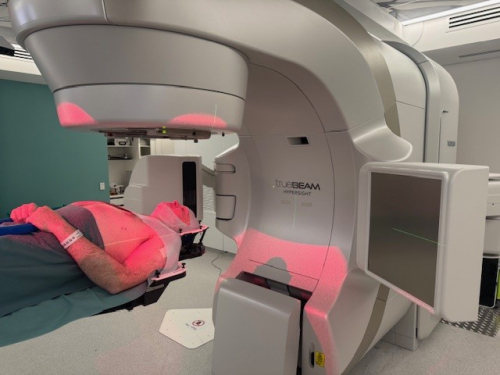Hormones lead to cancer treatment breakthrough

Biological differences between men and women can have an impact on the success of melanoma treatment, according to new research co-led by Alfred oncologist Miles Andrews.
The study has shown that using medication to block a naturally occurring hormone in melanoma patients undergoing targeted cancer treatment may hold the key to better outcomes.
Dr Andrews said that inhibiting the hormone testosterone – which is commonly found at higher levels in the male body – can significantly increase melanoma cells’ sensitivity and help the body push past treatment resistance.
“In this study, we looked at how the delivery of BRAF inhibitors, a targeted treatment of melanoma, might be more effective, given that we know therapeutic resistance is common and innovative treatment strategies are needed, “Dr Andrews said.
“In melanoma patients treated on a clinical trial of BRAF inhibitor-based therapy, we noticed that females had better responses.
“By studying their tumour samples, it looked like higher activity of androgens – the ‘male’ sex hormones like testosterone – in male patients might be the reason why their melanomas didn’t respond as well.
“In the trial, we used a hormone treatment to block androgens and found that melanoma cells became more sensitive to BRAF inhibitor treatment.”
Dr Andrews said that research co-published in the journal Nature also indicated that blocking the action of androgens could also be applied to immunotherapy, where treatment resistance is similarly a major problem.
“We can see that manipulating male sex hormones might also enhance the delivery of immunotherapy treatment, resulting in less melanoma recurrence, longer durations of cancer controlled, and overall better patient outcomes.”
“We’re excited because this mounting evidence clearly demonstrates the interplay between sex hormones and at least two major kinds of cancer therapy in current use, which has enormous potential to benefit many patients with a wide range of cancers.”
The study is based at the University of Texas MD Anderson Cancer Center.


